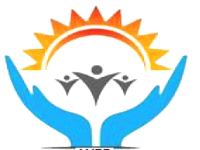About Us
History
Evolution of WEF
Legal Status: WEF is a non-profit-making non-government organization, registered under the following authorities of the Govt. of Bangladesh currently working in Patuakhali district:
- 13 January 2005 - NGO Affairs Bureau
- 27 March 2012 - The Department of Social Welfare
- 2 April, 2012 - Department of Women Affair
- 8 October 2013 - Trade License (5 Shreerampur UP)
Tax Identification Number (TIN): 880637708452-Circal-018; Taxes Zone Barisal
VAT Registration: 15141030295; Area code: 150601
Patuakhali is one of the most disadvantaged districts located in the southern central coastal area of Bangladesh. Geographical location of the district is 22°19’60” North and 90°19’60” East. The district is exposed to climate change vulnerability almost every year due to its location and nearness to the Bay of Bengal. Most of the women from marginal and poorer communities cannot come out to participate in development programs and cannot earn to meet up personal need and live with dignity due to conservative social practices.
Some educated women of Patuakhali district came forward and analyzed the vulnerability of the women and decided to stand beside them to overcome the utmost suffering and to live with dignity. In consequences in 2004 a group of 21 women philanthropists from Dashmina and Dumki upazilas led by Mrs. Parvin Ara Rashid, established the “Women Empowerment Foundation (WEF)” as an organization for the emancipation of disadvantage women and to capacitate the vulnerable women and empower them to establish their rights and entitlement and live with dignity.
Vision
To create a just and congruous society where women of the marginalized poor families and vulnerable communities will get equal opportunity to lead life with justice and dignity
Mission
To work with poverty prone and disaster-stricken disadvantaged, destitue and vulnerable women/people living in rural and slums as working partner
- To increase knowledge, perception and capacity of women to empowerment at families, communities and national level;
- To enhance honest, just and economic empowerment among the people;
- To alleviate poverty and prevent hunger by improving livelihoods security through climate change adaptation and marketable skill development;
- To cooperate people with disabilities and be with them in time of natural and human induced disasters to respond to their emergency;
- To ensure women and children’s rights and protection,
- To complement and supplement the government development agenda focused on the SDGs.

